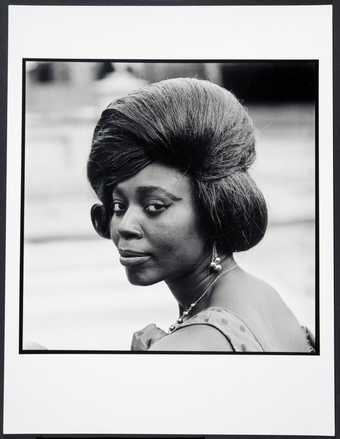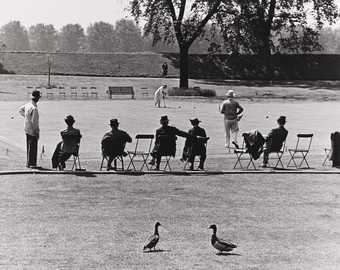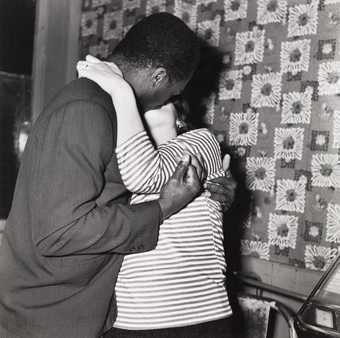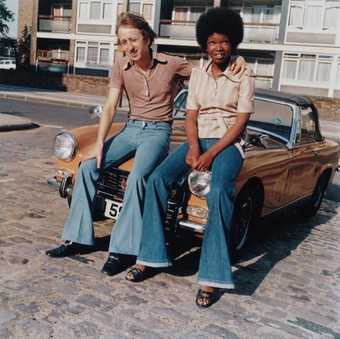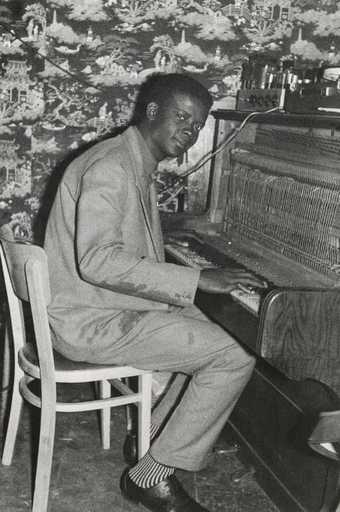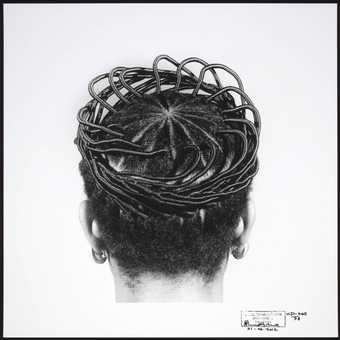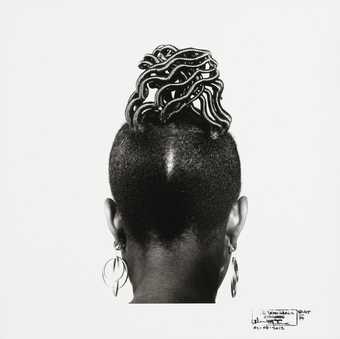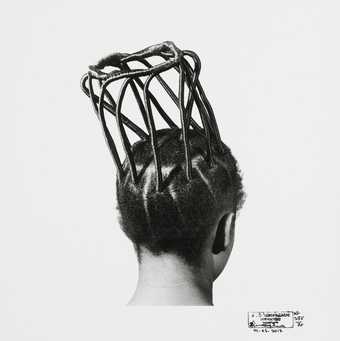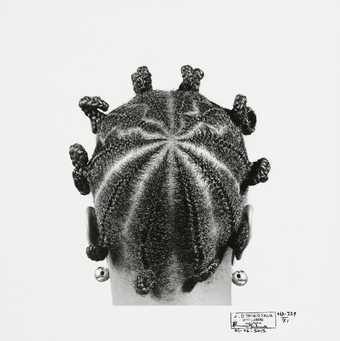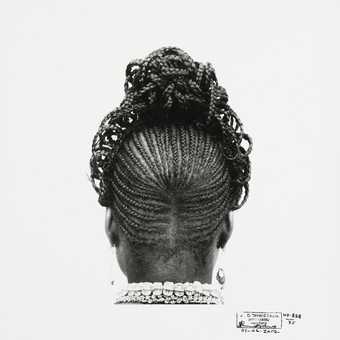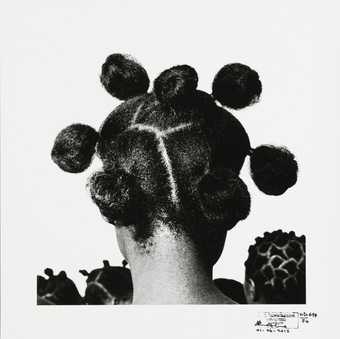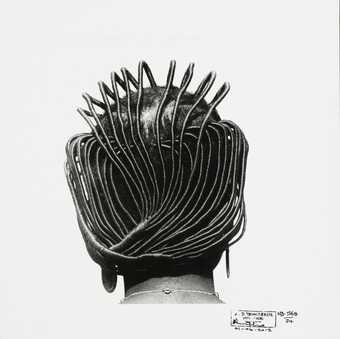
Prints and Drawings Room
View by appointment- Artist
- Bandele ‘Tex’ Ajetunmobi 1921–1994
- Medium
- Photograph, gelatin silver print on paper
- Dimensions
- Image: 376 × 252 mm
- Collection
- Tate
- Acquisition
- Gift Eric and Louise Franck London Collection 2016
- Reference
- P14368
Summary
This is one of a group of black and white photographs in Tate’s collection by Bandele Ajetunmobi – widely known as ‘Tex’ – in which he documented immigrant communities in the East End of London in the 1950s and 1960s, often focusing on the multi-racial nature of the area. The two photographs entitled Members’ Club, Whitechapel, London (Tate P14368 and P14370) date from the 1950s and are early documents of a multi-cultural London in the post-war years, at a time when a growing number of men and women were immigrating to Britain from the former colonies. They depict a musician and a mixed ethnicity couple in a club in the Whitechapel area, where many immigrants from the Caribbean settled. These types of venues were shaped by and for black people, but from the start were also frequented by white people. As the art historian Kobena Mercer has noted, in Britain ‘the nightlife surrounding black music was always a cross-cultural affair’ (Mercer 2012, p.15).
The subject of mixed ethnicity couples was particularly dear to Ajetunmobi. Couple Kissing, Whitechapel, London (Tate P14367) is a slightly later shot, capturing a black man and a white woman in the act of kissing, seemingly oblivious to the presence of the camera, or at least indifferent to it. Such photographs are very much a document of their time, the bold wall-paper designs that decorated the interiors of both private dwellings and public venues in 1950s and 1960s Britain dominating their backgrounds. Later, in the 1970s, Ajetunmobi would also use colour film for his portraits. In East End, London c.1975, for example, (Tate P14369) a young mixed ethnicity couple sit proudly on the bonnet of their car.
Ajetunmobi was one of Britain’s first black photographers. He was born in Nigeria in 1921 and was apprenticed to a portrait photographer in Lagos. In 1947, at the age of twenty-six, he stowed away on a boat from Nigeria where he had found himself an outcast on account of the disability he acquired from having polio as a child. He settled in Spitalfields, East London, an area he documented through photography for almost half a century. Most of Ajetunmobi’s work was destroyed when he died in 1994 apart for some two hundred negatives that his niece Victoria Loughran rescued. These are housed in the archive of Autograph ABP, London; the prints in Tate’s collection come from these negatives and were previously in the Eric and Louise Franck Collection, London.
Further reading
John Newman, Twin Lens Reflex – The Portrait Photographs of Bandele ‘Tex’ Ajetunmobi and Harry Jacobs, London 2004.
Kobena Mercer, ‘Funky London Childhood’, in Dennis Morris, Dennis Morris, Growing Up Black, London 2012, pp.14–15.
Elena Crippa
April 2016
Does this text contain inaccurate information or language that you feel we should improve or change? We would like to hear from you.

